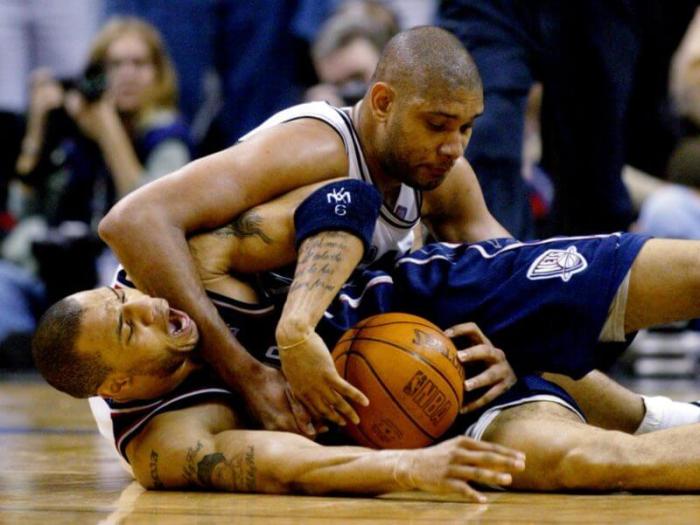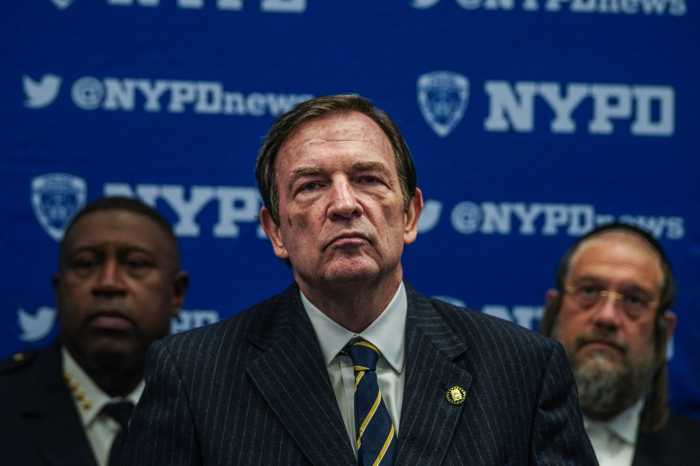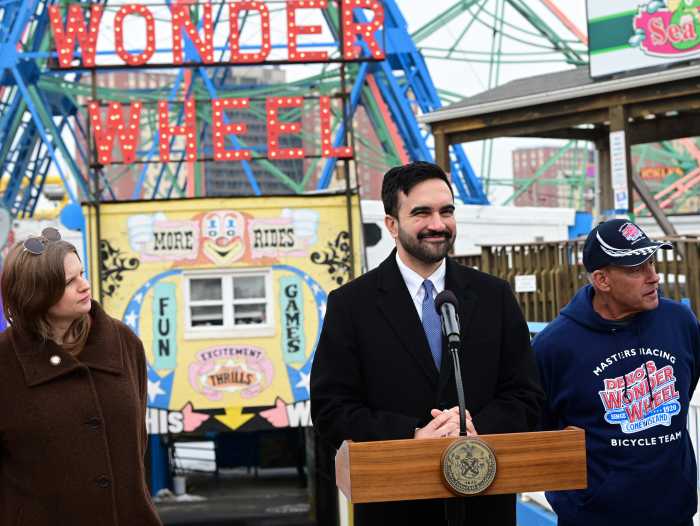Luke had acquired a tough-guy reputation when he decked 7-foot-2 strongman Artis Gilmore with one punch in an ABA game before both became NBA players. I urged him to establish that same persona in the NBA. Luke loved the role. He had every Blazer’s back. If an opposing player had a problem with any Blazer, he had to deal with Luke first.
Dr. Jack Ramsay, “Saying goodbye to ‘The Intimidator’“
Dr. Jack wrote that about Maurice Lucas shortly after Lucas prematurely passed away in 2010, leaving behind his wife, his three children, and a legacy of hard work, determination, and insatiable desire to intimidate and overpower opponents. The yin to Bill Walton’s yang in his days in Portland, Lucas led the 1977 NBA Champion Trailblazers with 20.2 points per game, adding 11.4 rebounds and nearly three assists.
Lucas was Charles Oakley before Charles Oakley, the poster boy (literally – that picture is SI’s 1977 Halloween cover) for the wave of tough black players that entered the league in the 70s, changing the culture of the NBA. The antithesis to the game that preceded him and the game we know today, Lucas would assuredly rack up technical fouls at an unheard rate had he come along 30 years later. (Perhaps he’d be remembered more fondly in Nets lore had he taken Kenyon Martin’s position in 2000, spending his prime years fighting anyone who tried to mess with Jason Kidd or Kerry Kittles.)
“A lot of people think I’m just one of these mean guys. Well, I just play rough. That’s the way you play when you’re in my game. … I don’t like to be the policeman. I’m a firm believer in ‘you gotta fight your own battles.’ Of course, I have to protect Bill [Walton] sometimes because guys are always taking shots at him. We won’t fight, we’ll just set a guy up and make a little sandwich out of him—POW!—wake him up. … To tell you the truth, I don’t really know which players are dirty, because a lot of cats don’t do to me what they do to everybody else…which I like.”
Maurice Lucas, “‘nobody, But Nobody, Is Going To Hurt My Teammates“
Despite his penchant for physicality, he wasn’t Rasheed Wallace; Lucas considered himself a protector and mentor as much as an enforcer. Ruthlessly, he cared, and his message rang league-wide – Lucas’s famous run-ins with giants Gilmore and Darryl Dawkins solidified his reputation as someone not afraid to knock your head off if he thought you needed to learn a lesson.
“Here was a guy, one of best in the game, who knows this young buck is coming in to take his position,” [Buck] Williams added. “But he was the kind of guy who looked out for the young, the weak and women; he had that mentality. I became an All-Star because of his tutelage.”
There was a price, though, usually paid with sore ribs. “Some days, I didn’t want to come to practice.”
Roy S. Johnson, “The NBA Misses Maurice Lucas
Williams & Lucas never shared a court together professionally – Lucas was gone as quickly as he came, sent to New York in what essentially amounted to a sign-and-trade for Ray Williams. I do wonder if Buck’s career would’ve taken off had Lucas stuck around, instead of topping off at “very good” from day one.
He left few memories with New Jersey, just 90 games of solid 15-9 ball on a team that ultimately didn’t matter. New Jersey wasted his protector/enforcer gene; with nobody on the team worth targeting, Lucas had little to fight for. Lucas’s tenure in New Jersey was nothing more than a stop-off in his rocky career, one that never rekindled the flame he first lit with Portland. A star in that championship year, his heart belonged to Portland – the city where he returned in his final professional season, eventually signing on as an assistant coach in 2005.
Lucas played well enough in his limited time to warrant inclusion to this series. But no one remembers Maurice Lucas as a New Jersey Net. Frankly, it’d be wrong if you did.

















